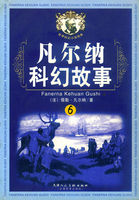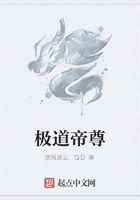In the meantime, the actors had obeyed his injunction, and the public, seeing that they were beginning to speak again, began once more to listen, not without having lost many beauties in the sort of soldered joint which was formed between the two portions of the piece thus abruptly cut short.Gringoire commented on it bitterly to himself.Nevertheless, tranquillity was gradually restored, the scholar held his peace, the mendicant counted over some coins in his hat, and the piece resumed the upper hand.
It was, in fact, a very fine work, and one which, as it seems to us, might be put to use to-day, by the aid of a little rearrangement. The exposition, rather long and rather empty, that is to say, according to the rules, was simple; and Gringoire, in the candid sanctuary of his own conscience, admired its clearness.As the reader may surmise, the four allegorical personages were somewhat weary with having traversed the three sections of the world, without having found suitable opportunity for getting rid of their golden dolphin.Thereupon a eulogy of the marvellous fish, with a thousand delicate allusions to the young betrothed of Marguerite of Flanders, then sadly cloistered in at Amboise, and without a suspicion that Labor and Clergy, Nobility and Merchandise had just made the circuit of the world in his behalf.The said dauphin was then young, was handsome, was stout, and, above all, he was the son of the Lion of France.I declare that this bold metaphor is admirable, and that the natural history of the theatre, on a day of allegory and royal marriage songs, is not in the least startled by a dolphin who is the son of a lion.It is precisely these rare and Pindaric mixtures which prove the poet's enthusiasm.Nevertheless, in order to play the part of critic also, the poet might have developed this beautiful idea in something less than two hundred lines.It is true that the mystery was to last from noon until four o'clock, in accordance with the orders of monsieur the provost, and that it was necessary to say something.Besides, the people listened patiently.
All at once, in the very middle of a quarrel between Mademoiselle Merchandise and Madame Nobility, at the moment when Monsieur Labor was giving utterance to this wonderful line, —
In forest ne'er was seen a more triumphant beast;
the door of the reserved gallery which had hitherto remained so inopportunely closed, opened still more inopportunely; and the ringing voice of the usher announced abruptly, “His eminence, Monseigneur the Cardinal de Bourbon.”
Chapter3 Monsieur the Cardinal
Poor Gringoire!the din of all the great double petards of the Saint-Jean, the discharge of twenty arquebuses on supports, the detonation of that famous serpentine of the Tower of Billy, which, during the siege of Paris, on Sunday, the twenty-sixth of September, 1465, killed seven Burgundians at one blow, the explosion of all the powder stored at the gate of the Temple, would have rent his ears less rudely at that solemn and dramatic moment, than these few words, which fell from the lips of the usher, “His eminence, Monseigneur the Cardinal de Bourbon.”
It is not that Pierre Gringoire either feared or disdained monsieur the cardinal.He had neither the weakness nor the audacity for that.A true eclectic, as it would be expressed nowadays, Gringoire was one of those firm and lofty, moderate and calm spirits, which always know how to bear themselves amid all circumstances, and who are full of reason and of liberal philosophy, while still setting store by cardinals.A rare, precious, and never interrupted race of philosophers to whom wisdom, like another Ariadne, seems to have given a clew of thread which they have been walking along unwinding since the beginning of the world, through the labyrinth of human affairs.One finds them in all ages, ever the same; that is to say, always according to all times.And, without reckoning our Pierre Gringoire, who may represent them in the fifteenth century if we succeed in bestowing upon him the distinction which he deserves, it certainly was their spirit which animated Father du Breul, when he wrote, in the sixteenth, these naively sublime words, worthy of all centuries:“I am a Parisian by nation, and a Parrhisian in language, for parrhisia in Greek signifies liberty of speech; of which I have made use even towards messeigneurs the cardinals, uncle and brother to Monsieur the Prince de Conty, always with respect to their greatness, and without offending any one of their suite, which is much to say.”
There was then neither hatred for the cardinal, nor disdain for his presence, in the disagreeable impression produced upon Pierre Gringoire. Quite the contrary; our poet had too much good sense and too threadbare a coat, not to attach particular importance to having the numerous allusions in his prologue, and, in particular, the glorification of the dauphin, son of the Lion of France, fall upon the most eminent ear.But it is not interest which predominates in the noble nature of poets.I suppose that the entity of the poet may be represented by the number ten; it is certain that a chemist on analyzing and pharmacopolizing it, as Rabelais says, would find it composed of one part interest to nine parts of self-esteem.
Now, at the moment when the door had opened to admit the cardinal, the nine parts of self-esteem in Gringoire, swollen and expanded by the breath of popular admiration, were in a state of prodigious augmentation, beneath which disappeared, as though stifled, that imperceptible molecule of which we have just remarked upon in the constitution of poets; a precious ingredient, by the way, a ballast of reality and humanity, without which they would not touch the earth. Gringoire enjoyed seeing, feeling, fingering, so to speak an entire assembly stupefied, petrified, and as though asphyxiated in the presence of the incommensurable tirades which welled up every instant from all parts of his bridal song.I affirm that he shared the general beatitude, and that, quite the reverse of La Fontaine, who, at the presentation of his comedy of the“Florentine, ”asked, “Who is the ill-bred lout who made that rhapsody?”Gringoire would gladly have inquired of his neighbor, “Whose masterpiece is this?”
The reader can now judge of the effect produced upon him by the abrupt and unseasonable arrival of the cardinal.
That which he had to fear was only too fully realized.The entrance of his eminence upset the audience.All heads turned towards the gallery.It was no longer possible to hear one's self.“The cardinal!The cardinal!”repeated all mouths. The unhappy prologue stopped short for the second time.
The cardinal halted for a moment on the threshold of the estrade. While he was sending a rather indifferent glance around the audience, the tumult redoubled.Each person wished to get a better view of him.Each man vied with the other in thrusting his head over his neighbor's shoulder.
He was, in fact, an exalted personage, the sight of whom was well worth any other comedy. Charles, Cardinal de Bourbon, Archbishop and Comte of Lyon, Primate of the Gauls, was allied both to Louis XI., through his brother, Pierre, Seigneur de Beaujeu, who had married the king's eldest daughter, and to Charles the Bold through his mother, Agnès of Burgundy.Now, the dominating trait, the peculiar and distinctive trait of the character of the Primate of the Gauls, was the spirit of the courtier, and devotion to the powers that be.The reader can form an idea of the numberless embarrassments which this double relationship had caused him, and of all the temporal reefs among which his spiritual bark had been forced to tack, in order not to suffer shipwreck on either Louis or Charles, that Scylla and that Charybdis which had devoured the Duc de Nemours and the Constable de Saint-Pol.Thanks to Heaven's mercy, he had made the voyage successfully, and had reached home without hindrance.But although he was in port, and precisely because he was in port, he never recalled without disquiet the varied haps of his political career, so long uneasy and laborious.Thus, he was in the habit of saying that the year 1476 had been“white and black”for him—meaning thereby, that in the course of that year he had lost his mother, the Duchesse de la Bourbonnais, and his cousin, the Duke of Burgundy, and that one grief had consoled him for the other.
Nevertheless, he was a fine man; he led a joyous cardinal's life, liked to enliven himself with the royal vintage of Challuau, did not hate Richarde la Garmoise and Thomasse la Saillarde, bestowed alms on pretty girls rather than on old women, —and for all these reasons was very agreeable to the populace of Paris.He never went about otherwise than surrounded by a small court of bishops and priests of high lineage, gallant, jovial, and given to carousing on occasion; and more than once the good and devout women of Saint Germain d'Auxerre, when passing at night beneath the brightly illuminated windows of Bourbon, had been scandalized to hear the same voices which had intoned vespers for them during the day carolling, to the clinking of glasses, the bacchic proverb of Benedict XII., that pope who had added a third crown to the Tiara—Bibamus papaliter.
It was this justly acquired popularity, no doubt, which preserved him on his entrance from any bad reception at the hands of the mob, which had been so displeased but a moment before, and very little disposed to respect a cardinal on the very day when it was to elect a pope. But the Parisians cherish little rancor; and then, having forced the beginning of the play by their authority, the good bourgeois had got the upper hand of the cardinal, and this triumph was sufficient for them.Moreover, the Cardinal de Bourbon was a handsome man, —he wore a fine scarlet robe, which he carried off very well, —that is to say, he had all the women on his side, and, consequently, the best half of the audience.Assuredly, it would be injustice and bad taste to hoot a cardinal for having come late to the spectacle, when he is a handsome man, and when he wears his scarlet robe well.
He entered, then, bowed to those present with the hereditary smile of the great for the people, and directed his course slowly towards his scarlet velvet arm-chair, with the air of thinking of something quite different. His cortege—what we should nowadays call his staff—of bishops and priests invaded the estrade in his train, not without causing redoubled tumult and curiosity among the audience.Each man vied with his neighbor in pointing them out and naming them, in seeing who should recognize at least one of them:this one, the Bishop of Marseilles; —this one, the primicier of Saint-Denis; —this one, Robert de Lespinasse, Abbé of Saint-Germain des Prés, that libertine brother of a mistress of Louis XI.; all with many errors and absurdities.As for the scholars, they swore.This was their day, their feast of fools, their saturnalia, the annual orgy of the corporation of Law clerks and of the school.There was no turpitude which was not sacred on that day.And then there were gay gossips in the crowd—Simone Quatrelivres, Agnès la Gadine, and Rabine Pièdebou.Was it not the least that one could do to swear at one's ease and revile the name of God a little, on so fine a day, in such good company as dignitaries of the church and loose women?So they did not abstain; and, in the midst of the uproar, there was a frightful concert of blasphemies and enormities of all the unbridled tongues, the tongues of clerks and students restrained during the rest of the year, by the fear of the hot iron of Saint Louis.Poor Saint Louis!how they set him at defiance in his own court of law!Each one of them selected from the new-comers on the platform, a black, gray, white, or violet cassock as his target.Joannes Frollo de Molendin, in his quality of brother to an archdeacon, boldly attacked the scarlet; he sang in deafening tones, with his impudent eyes fastened on the cardinal, “Cappa repleta mero!”
All these details which we here lay bare for the edification of the reader, were so covered by the general uproar, that they were lost in it before reaching the reserved platforms; moreover, they would have moved the cardinal but little, so much a part of the customs were the liberties of that day. Moreover, he had another cause for solicitude, and his mien as wholly preoccupied with it, which entered the estrade the same time as himself; this was the embassy from Flanders.
Not that he was a profound politician, nor was he borrowing trouble about the possible consecondTitles of the marriage of his cousin Marguerite de Bourgoyne to his cousin Charles, Dauphin de Vienne; nor as to how long the good understanding which had been patched up between the Duke of Austria and the King of France would last; nor how the King of England would take this disdain of his daughter. All that troubled him but little; and he gave a warm reception every evening to the wine of the royal vintage of Chaillot, without a suspicion that several flasks of that same wine, cordially offered to Edward IV.by Louis XI., would, some fine morning, rid Louis XI.of Edward IV.“The much honored embassy of Monsieur the Duke of Austria, ”brought the cardinal none of these cares, but it troubled him in another direction.It was, in fact, somewhat hard, and we have already hinted at it on the second page of this book, —for him, Charles de Bourbon, to be obliged to feast and receive cordially no one knows what bourgeois; —for him, a cardinal, to receive aldermen; —for him, a Frenchman, and a jolly companion, to receive Flemish beer-drinkers, —and that in public!This was, certainly, one of the most irksome grimaces that he had ever executed for the good pleasure of the king.
So he turned toward the door, and with the best grace in the world, when the usher announced, in a sonorous voice, “Messieurs the Envoys of Monsieur the Duke of Austria.”It is useless to add that the whole hall did the same.
Then arrived, two by two, with a gravity which made a contrast in the midst of the frisky ecclesiastical escort of Charles de Bourbon, the eight and forty ambassadors of Maximilian of Austria, having at their head the reverend Father in God, Jehan, Abbot of Saint-Bertin, Chancellor of the Golden Fleece, and Jacques de Goy, Sieur Dauby, Grand Bailiff of Ghent. A deep silence settled over the assembly, accompanied by stifled laughter at the preposterous names and all the bourgeois designations which each of these personages transmitted with imperturbable gravity to the usher, who then tossed names and titles pell-mell and mutilated to the crowd below.There were Master Loys Roelof, alderman of the city of Louvain; Messire Clays d'Etuelde, alderman of Brussels; Messire Paul de Baeust, Sieur de Voirmizelle, President of Flanders; Master Jehan Coleghens, burgomaster of the city of Antwerp; Master George de la Moere, first alderman of the kuere of the city of Ghent; Master Gheldolf van der Hage, first alderman of the parchous of the said town; and the Sieur de Bierbecque, and Jehan Pinnock, and Jehan Dymaerzelle, etc., etc., etc.; bailiffs, aldermen, burgomasters; burgomasters, aldermen, bailiffs—all stiff, affectedly grave, formal, dressed out in velvet and damask, hooded with caps of black velvet, with great tufts of Cyprus gold thread; good Flemish heads, after all, severe and worthy faces, of the family which Rembrandt makes to stand out so strong and grave from the black background of his“Night Patrol”; personages all of whom bore, written on their brows, that Maximilian of Austria had done well in“trusting implicitly, ”as the manifest ran, “in their sense, valor, experience, loyalty, and good wisdom.”
There was one exception, however. It was a subtle, intelligent, crafty-looking face, a sort of combined monkey and diplomat phiz, before whom the cardinal made three steps and a profound bow, and whose name, nevertheless, was only, “Guillaume Rym, counsellor and pensioner of the City of Ghent.”
Few persons were then aware who Guillaume Rym was. A rare genius who in a time of revolution would have made a brilliant appearance on the surface of events, but who in the fifteenth century was reduced to cavernous intrigues, and to“living in mines, ”as the Due de Saint-Simon expresses it.Nevertheless, he was appreciated by the“miner”of Europe; he plotted familiarly with Louis XI., and often lent a hand to the king's secret jobs.All which things were quite unknown to that throng, who were amazed at the cardinal's politeness to that frail figure of a Flemish bailiff.
Chapter4 Master Jacques Coppenole
While the pensioner of Ghent and his eminence were exchanging very low bows and a few words in voices still lower, a man of lofty stature, with a large face and broad shoulders, presented himself, in order to enter abreast with Guillaume Rym; one would have pronounced him a bull-dog by the side of a fox. His felt doublet and leather jerkin made a spot on the velvet and silk which surrounded him.Presuming that he was some groom who had stolen in, the usher stopped him.
“Hold, my friend, you cannot pass!”
The man in the leather jerkin shouldered him aside.
“What does this knave want with me?”said he, in stentorian tones, which rendered the entire hall attentive to this strange colloquy.“Don't you see that I am one of them?”
“Your name?”demanded the usher.
“Jacques Coppenole.”
“Your titles?”
“Hosier at the sign of the 'Three Little Chains, 'of Ghent.”
The usher recoiled. One might bring one's self to announce aldermen and burgomasters, but a hosier was too much.The cardinal was on thorns.All the people were staring and listening.For two days his eminence had been exerting his utmost efforts to lick these Flemish bears into shape, and to render them a little more presentable to the public, and this freak was startling.But Guillaume Rym, with his polished smile, approached the usher.
“Announce Master Jacques Coppenole, clerk of the aldermen of the city of Ghent, ”he whispered, very low.
“Usher, ”interposed the cardinal, aloud, “announce Master Jacques Coppenole, clerk of the aldermen of the illustrious city of Ghent.”
This was a mistake. Guillaume Rym alone might have conjured away the difficulty, but Coppenole had heard the cardinal.
“No, cross of God?”he exclaimed, in his voice of thunder, “Jacques Coppenole, hosier. Do you hear, usher?Nothing more, nothing less.Cross of God!hosier; that's fine enough.Monsieur the Archduke has more than once sought his gant in my hose.”
Laughter and applause burst forth. A jest is always understood in Paris, and, consequently, always applauded.
Let us add that Coppenole was of the people, and that the auditors which surrounded him were also of the people. Thus the communication between him and them had been prompt, electric, and, so to speak, on a level.The haughty air of the Flemish hosier, by humiliating the courtiers, had touched in all these plebeian souls that latent sentiment of dignity still vague and indistinct in the fifteenth century.
This hosier was an equal, who had just held his own before monsieur the cardinal. A very sweet reflection to poor fellows habituated to respect and obedience towards the underlings of the sergeants of the bailiff of Sainte-Geneviève, the cardinal's train-bearer.
Coppenole proudly saluted his eminence, who returned the salute of the all-powerful bourgeois feared by Louis XI.Then, while Guillaume Rym, a“sage and malicious man, ”as Philippe de Comines puts it, watched them both with a smile of raillery and superiority, each sought his place, the cardinal quite abashed and troubled, Coppenole tranquil and haughty, and thinking, no doubt, that his title of hosier was as good as any other, after all, and that Marie of Burgundy, mother to that Marguerite whom Coppenole was to-day bestowing in marriage, would have been less afraid of the cardinal than of the hosier; for it is not a cardinal who would have stirred up a revolt among the men of Ghent against the favorites of the daughter of Charles the Bold; it is not a cardinal who could have fortified the populace with a word against her tears and prayers, when the Maid of Flanders came to supplicate her people in their behalf, even at the very foot of the scaffold; while the hosier had only to raise his leather elbow, in order to cause to fall your two heads, most illustrious seigneurs, Guy d'Hymbercourt and Chancellor Guillaume Hugonet.
Nevertheless, all was over for the poor cardinal, and he was obliged to quaff to the dregs the bitter cup of being in such bad company.
The reader has, probably, not forgotten the impudent beggar who had been clinging fast to the fringes of the cardinal's gallery ever since the beginning of the prologue. The arrival of the illustrious guests had by no means caused him to relax his hold, and, while the prelates and ambassadors were packing themselves into the stalls—like genuine Flemish herrings—he settled himself at his ease, and boldly crossed his legs on the architrave.The insolence of this proceeding was extraordinary, yet no one noticed it at first, the attention of all being directed elsewhere.He, on his side, perceived nothing that was going on in the hall; he wagged his head with the unconcern of a Neapolitan, repeating from time to time, amid the clamor, as from a mechanical habit, “Charity, please!”And, assuredly, he was, out of all those present, the only one who had not deigned to turn his head at the altercation between Coppenole and the usher.Now, chance ordained that the master hosier of Ghent, with whom the people were already in lively sympathy, and upon whom all eyes were riveted—should come and seat himself in the front row of the gallery, directly above the mendicant; and people were not a little amazed to see the Flemish ambassador, on concluding his inspection of the knave thus placed beneath his eyes, bestow a friendly tap on that ragged shoulder.The beggar turned round; there was surprise, recognition, a lighting up of the two countenances, and so forth; then, without paying the slightest heed in the world to the spectators, the hosier and the wretched being began to converse in a low tone, holding each other's hands, in the meantime, while the rags of Clopin Trouillefou, spread out upon the cloth of gold of the dais, produced the effect of a caterpillar on an orange.
The novelty of this singular scene excited such a murmur of mirth and gayety in the hall, that the cardinal was not slow to perceive it; he half bent forward, and, as from the point where he was placed he could catch only an imperfect view of Trouillerfou's ignominious doublet, he very naturally imagined that the mendicant was asking alms, and, disgusted with his audacity, he exclaimed:“Bailiff of the Courts, toss me that knave into the river!”
“Cross of God!monseigneur the cardinal, ”said Coppenole, without quitting Clopin's hand, “he's a friend of mine.”
“Good!good!”shouted the populace. From that moment, Master Coppenole enjoyed in Paris as in Ghent, “great favor with the people; for men of that sort do enjoy it, ”says Philippe de Comines, “when they are thus disorderly.”The cardinal bit his lips.He bent towards his neighbor, the Abbé of Saint Geneviève, and said to him in a low tone, —”Fine ambassadors monsieur the archduke sends here, to announce to us Madame Marguerite!”
“Your eminence, ”replied the abbé, “wastes your politeness on these Flemish swine.Margaritas ante porcos.''
“Say rather, ”retorted the cardinal, with a smile, “Porcos ante Margaritam.''
The whole little court in cassocks went into ecstacies over this play upon words. The cardinal felt a little relieved; he was quits with Coppenole, he also had had his jest applauded.
Now, will those of our readers who possess the power of generalizing an image or an idea, as the expression runs in the style of to-day, permit us to ask them if they have formed a very clear conception of the spectacle presented at this moment, upon which we have arrested their attention, by the vast parallelogram of the grand hall of the palace.















